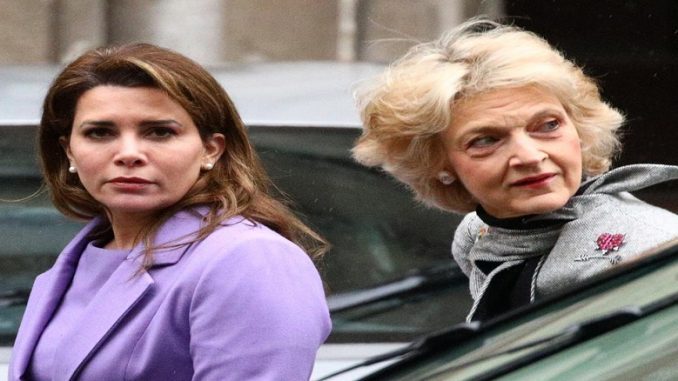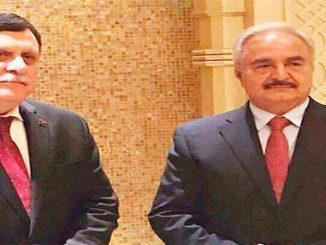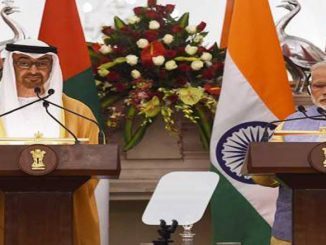
The billionaire ruler of Dubai arranged the kidnapping of two of his adult daughters and forcibly returned them to the Gulf state after they attempted to flee abroad, a UK court has found.
In a case described by the judge as “extraordinary,” the family division of the High Court in London also found that Sheikh Mohammed bin Rashid Al Maktoum conducted a “campaign of fear and intimidation” against his former wife, Jordanian Princess Haya bint al-Hussein.
The court determined that the sheikh organized abductions of his two daughters on three occasions — including one from the historic UK city of Cambridge and another in international waters off the coast of India.
The findings were revealed after a series of hearings in London involving Princess Haya and can now be disclosed after reporting restrictions were lifted.
Sir Andrew McFarlane, the UK most senior family judge, established as fact that Sheika Shamsa, one of the sheik’s daughters by another wife, ran away from her family in the summer of 2000 while visiting the UK. She was later abducted and forced into a car in Cambridge by men working for her father, before being driven to property owned by the sheikh. There, she was put on a helicopter to Deauville in France and then on a jet back to Dubai.
Another daughter, Sheikha Latifa, had twice tried to escape her Emirati family but was forced back, once in 2002 from the border of Dubai with Oman, and in 2018 “by an armed commando assault at sea” in international waters near the coast of India, the judge found.
“With respect to both Shamsa and Latifa it is asserted that following their return to the custody of the father’s family they have been deprived of their liberty,” the judgment says, finding the assertion to be true.
Sheikh Mohammed — the 70-year-old vice president and prime minister of the United Arab Emirates — said the court’s assessment was a one-sided account.
“This case concerns highly personal and private matters relating to our children. The appeal was made to protect the best interests and welfare of the children. The outcome does not protect my children from media attention in the way that other children in family proceedings in the UK are protected,” he said in a statement issued by his representatives.
“As a head of government, I was not able to participate in the court’s fact-finding process. This has resulted in the release of a ‘fact-finding’ judgment which inevitably tells only one side of the story. I ask that the media respect the privacy of our children and do not intrude into their lives in the UK.”
The judgment said the sheikh, had he wished, was fully able to take part in the hearings and that his account did not contradict the evidence in regards to the abductions.
“Indeed, his account confirms that he, together with Shamsa’s mother, ‘decided to organize a search for her.’ The other evidence indicates that the operation to remove Shamsa from Cambridge and thence to Dubai was undertaken by those working for, or assisting the father and his staff,” the judge noted.
In his ruling published Thursday, McFarlane also found that the sheikh conducted a sustained campaign of fear, intimidation, and harassment of Princess Haya.
The court determined that the princess had begun an adulterous relationship with one of her male bodyguards, which was all part of a deteriorating relationship with the sheikh, who without her knowledge, divorced her under Sharia law in 2019.
The judge found that the princess received several threats, including a series of anonymous notes, left in her bedroom or elsewhere, making threats, for example: “We will take your son — your daughter is ours — your life is over,” and warning her to be careful.
Believing she was unsafe, Princess Haya fled Dubai for London with her two children by the sheikh. The princess, who was the sheikh’s sixth wife and is not the mother of the abducted daughters, brought the case to seek wardship for the two children, aged eight and 12, fearing they too would be kidnapped.
Giving testimony last year, she told the court: “It’s not just him I’m worried about. It’s the people around him, people that I know. I know how they operate. I have seen what has happened to their sisters and I can’t face the fact that the same might happen to them.”
In the early stages of the nine-month proceedings, the sheikh denied Princess Haya’s allegations. Last October, he dropped his opposition to the wardship and attempted to prevent the fact-finding element of the case going ahead. But the judge ruled it should proceed anyway, and its findings can inform any future legal action.
Allegations of torture
In 2018, Latifa recorded a video, uploaded to YouTube, in which she alleged her father had her imprisoned for over three years, during which she was tortured. “I went in June 2002 and I came out in October 2005… It was constant torture, constant torture, even when they weren’t physically beating me up, they were torturing me,” she alleged.
The judge said that he did not have enough evidence to allegations of torture as true, though he made clear he also did not have evidence to establish them as untrue.
In December 2018, Latifa was visited by the former UN Human Rights Commissioner Mary Robinson. Latifa was seen in grainy photographs alongside Robinson, a former President of Ireland, who said later that Latifa was “troubled” and “regretted” her attempts to escape. Robinson’s account was criticized by human rights activists.
Princess Haya, the daughter of the late King Hussein of Jordan and the half-sister of the King of Jordan, is a well-known international figure. She is close friends with the heir to the British throne, Prince Charles and his wife Camilla, the Duchess of Cornwall. Princess Haya’s lawyer Fiona Shackleton acted for Prince Charles in his divorce from Princess Diana.
The princess, 45, studied politics, philosophy, and economics at Oxford University and is a keen equestrian, representing Jordan at the 2000 Olympics in Sydney.
Resources: CNN, BBC, and Blomberg



